Drought reduces Mississippi River to a relative trickle
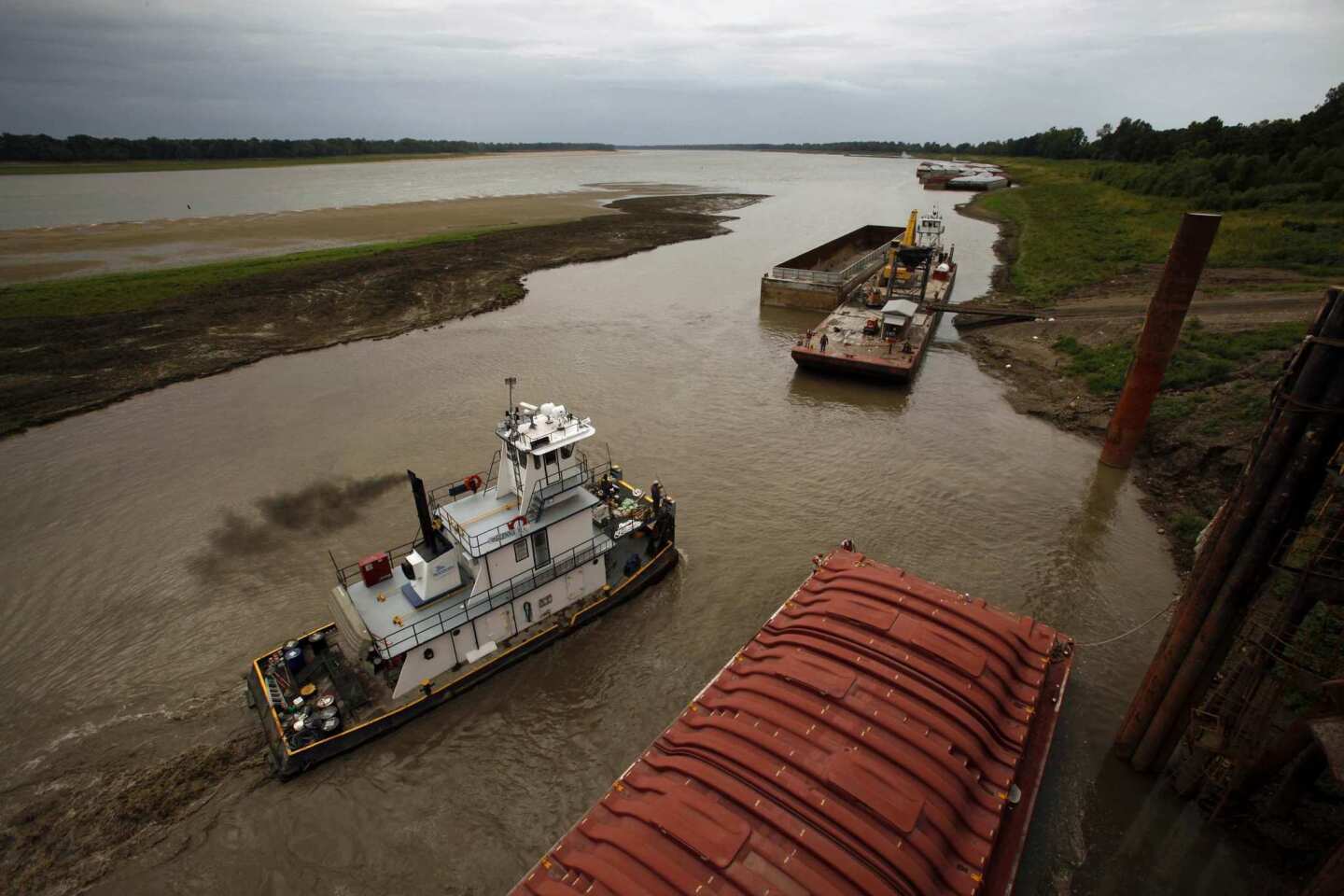
A sandbar no one has seen before appears in the Mississippi River at Lake Providence, La. Farmers are desperate to get their corn and soybeans shipped. (Carolyn Cole / Los Angeles Times)
Drought has sharply reduced the flow of the Mississippi River, limiting vital barge traffic for corn, soybeans and other goods. Food prices could rise as a result. Full story
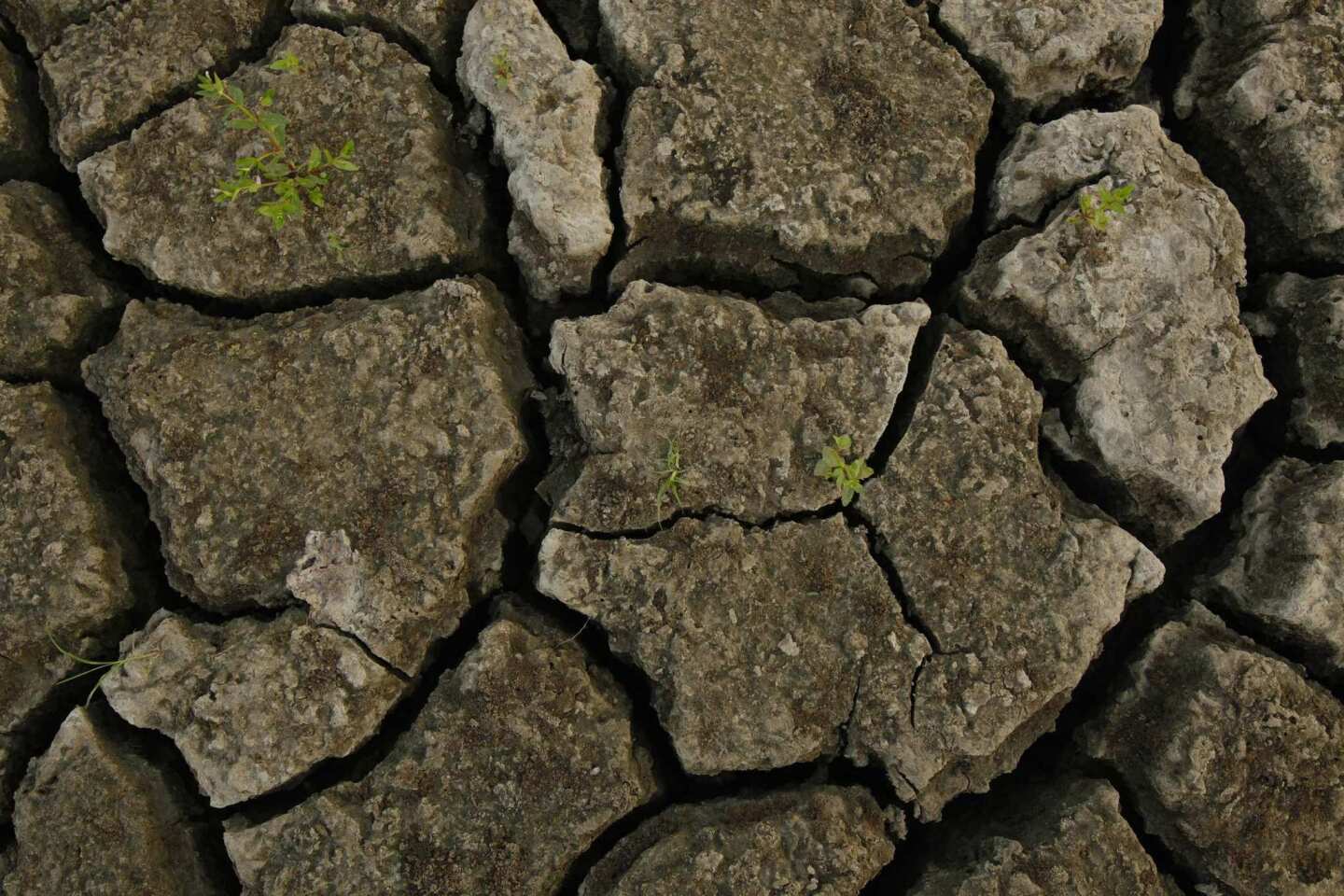
The Mississippi River is near a historic low following last year’s flood. The edges of the river are shifting as the low water levels cause the ground to move. (Carolyn Cole / Los Angeles Times)
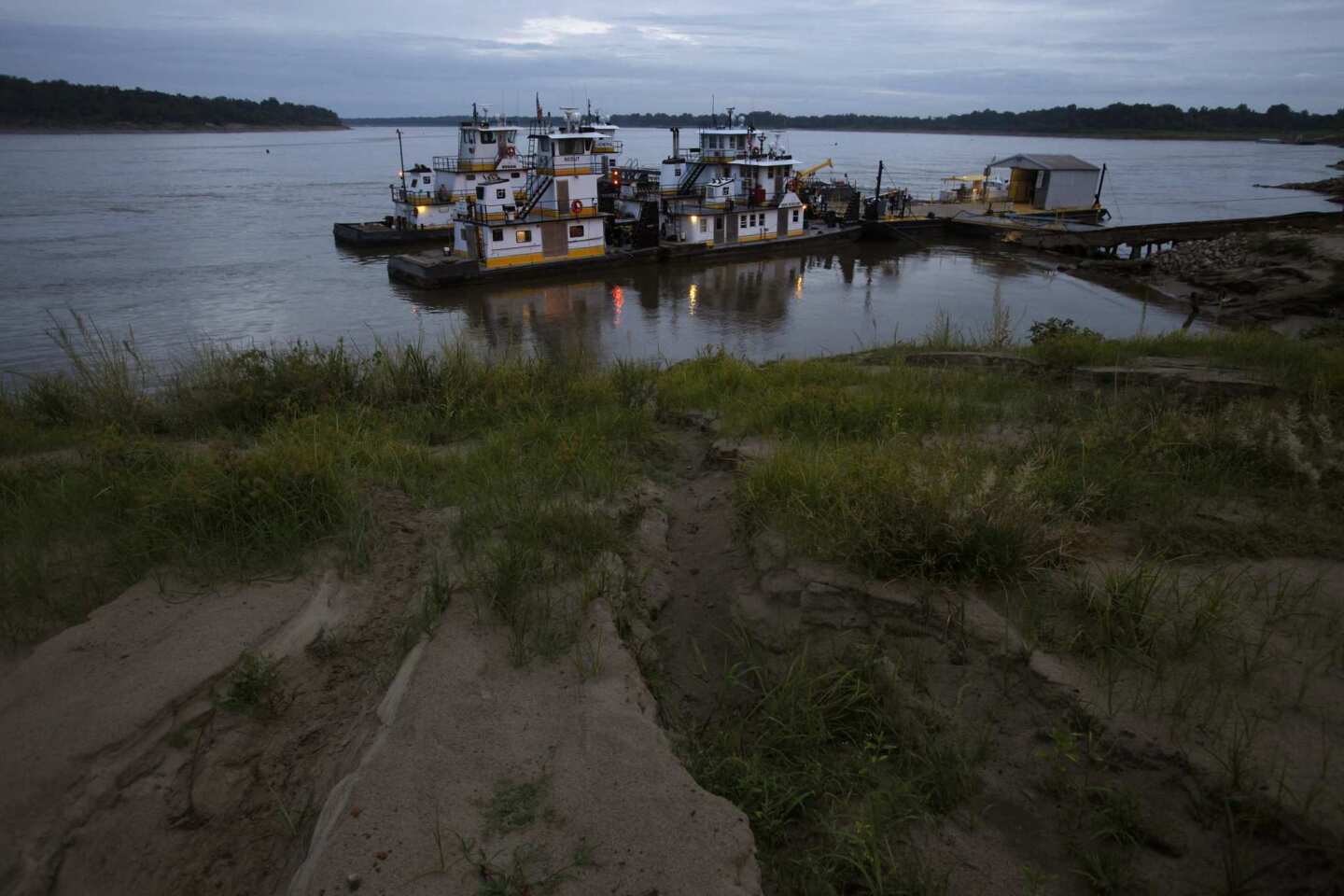
Push boats prepare to go to work at sunrise at the port of Jackson, Miss. (Carolyn Cole / Los Angeles Times)
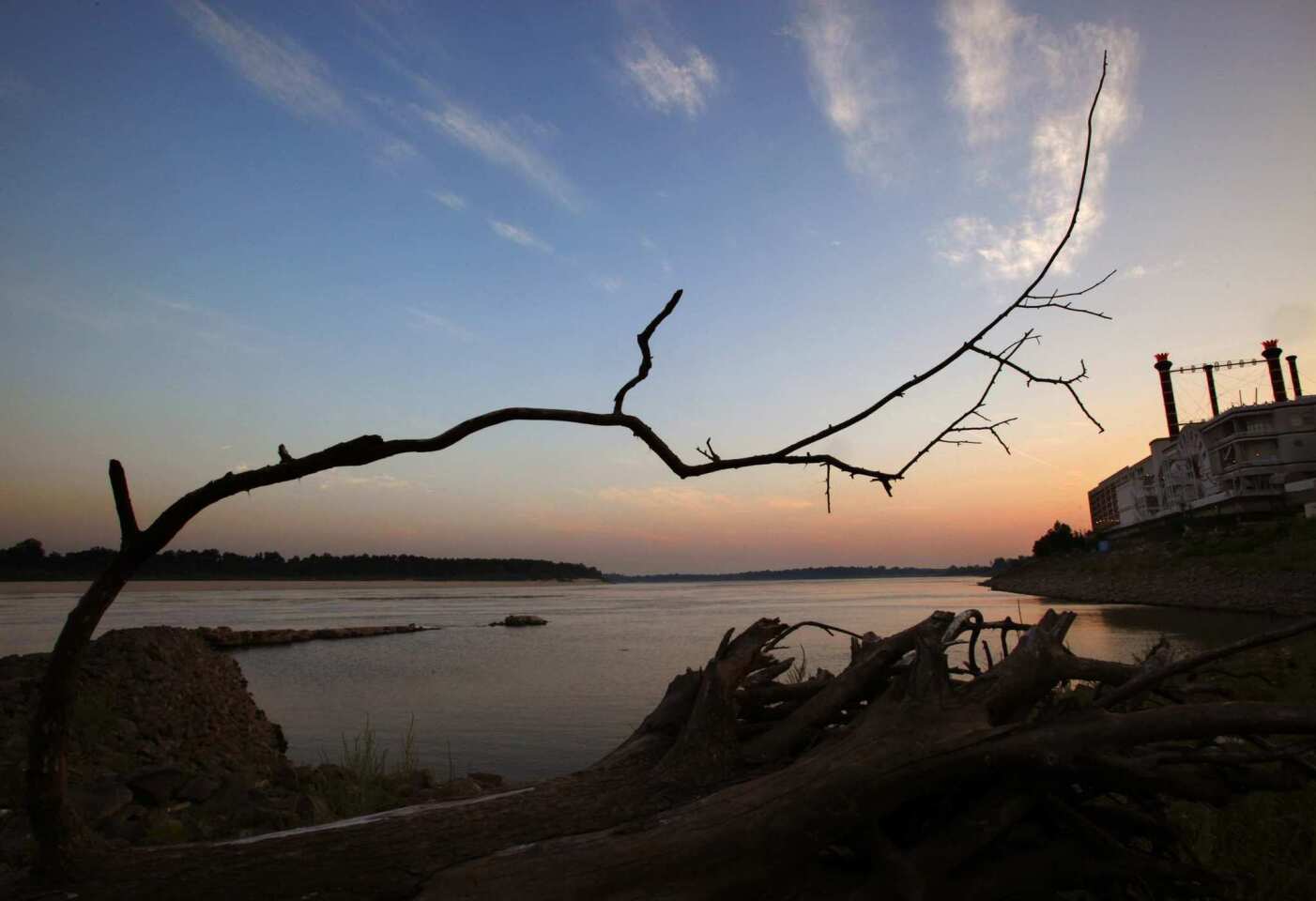
At Vicksburg, Miss., the land is sliding into the river due to the low water levels. (Carolyn Cole / Los Angeles Times)
Advertisement
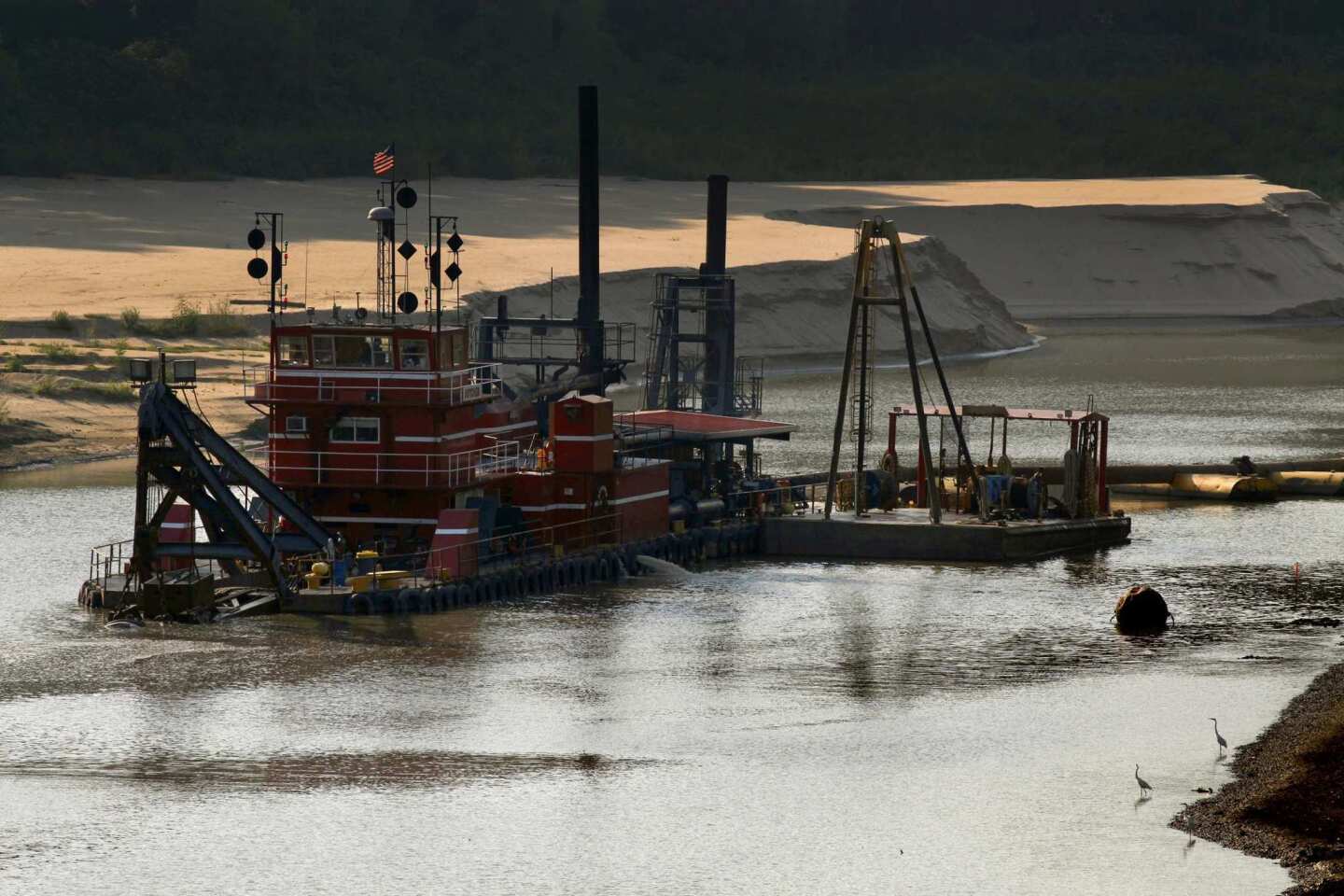
A dredger works to deepen the port near Lake Providence, La. The federal government no longer dredges the river routinely, which means silt piles up. (Carolyn Cole / Los Angeles Times)
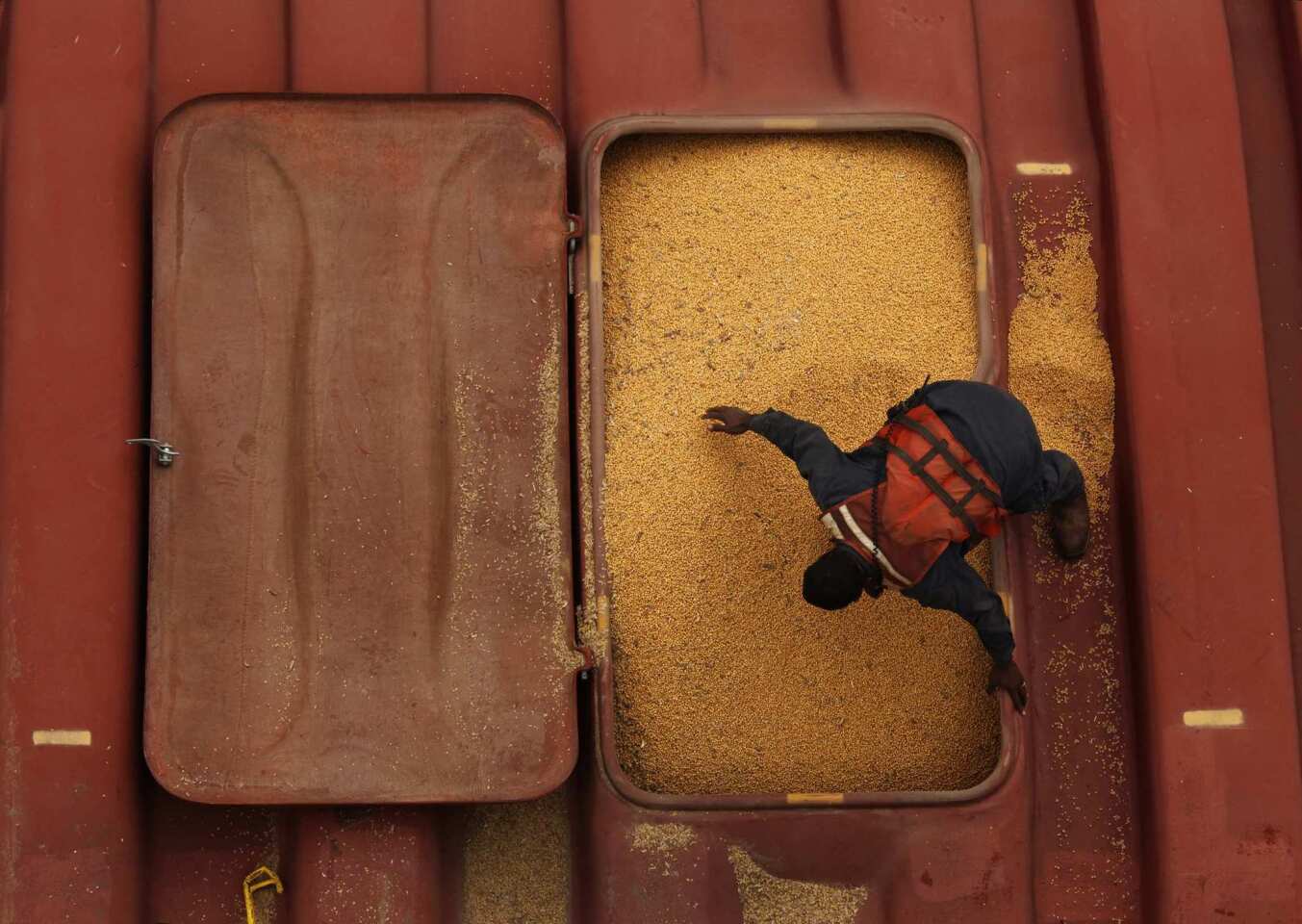
Soybeans are smoothed out in a barge bound for New Orleans. Soybean shipments are piling up on shore and could spoil if not shipped soon. (Carolyn Cole / Los Angeles Times)
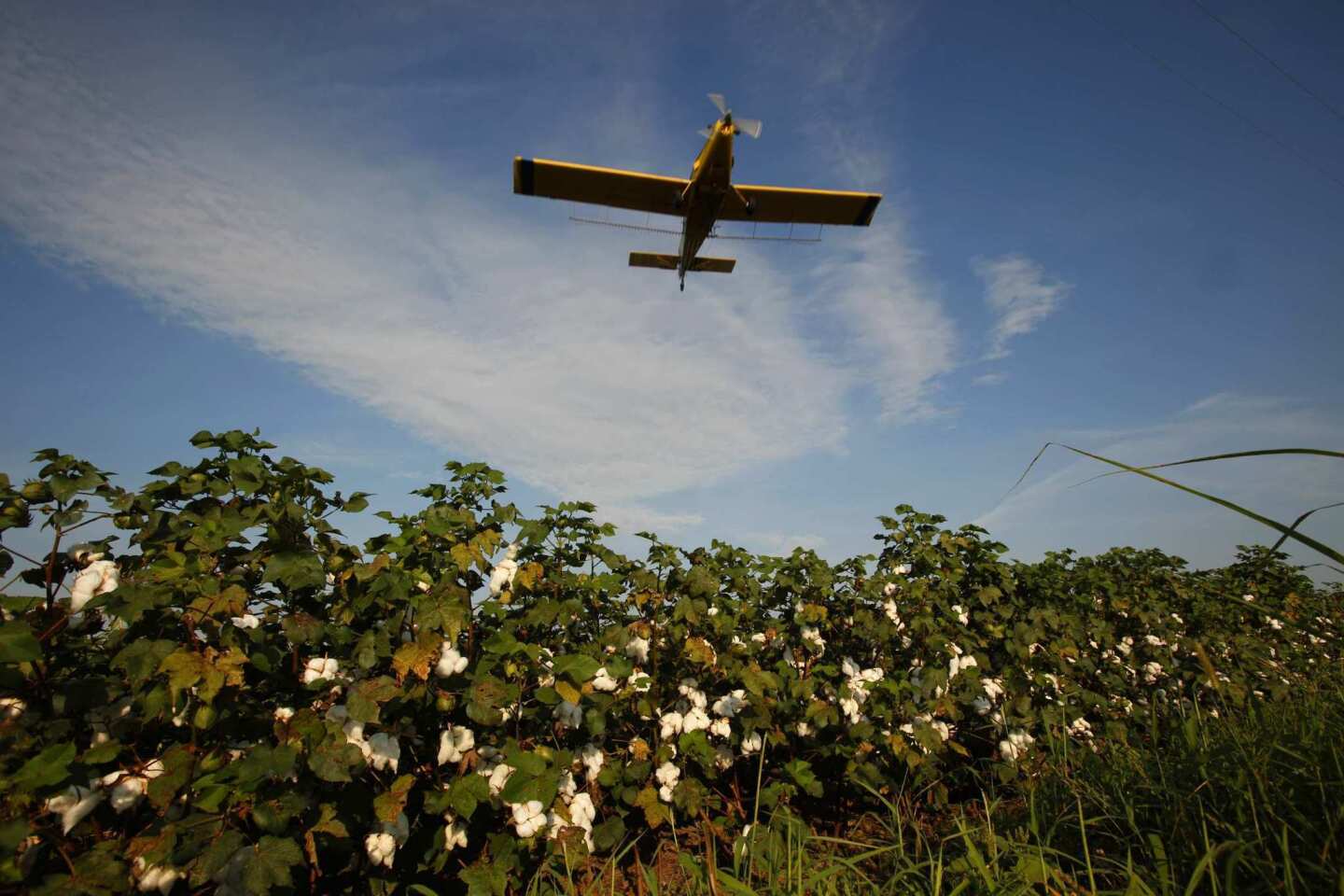
A crop duster sprays cotton fields near the Mississippi River at Lake Providence, La. Chemical fertilizers are shipped on the river to this region, one of the many industries that depend on the river for major transport. (Carolyn Cole / Los Angeles Times)

Mark Raley operates a grain storage business in Monticello, La. He is having to store harvested corn on the ground under large tarps until transport on the Mississippi River returns to normal. Corn can be stored for longer periods than crops such as soy beans. He says better maintenance of the river ports must happen or we will lose the shipping industry on the Mississippi River. (Carolyn Cole / Los Angeles Times)







